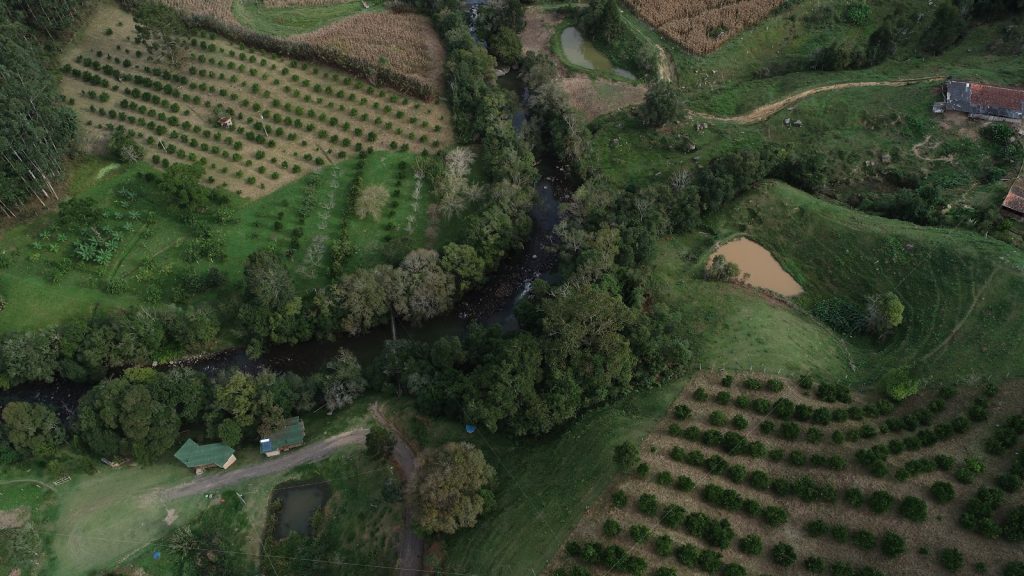By Evan Bowness and Dana James

The Centre for Sustainable Food Systems (CSFS) has a number of projects looking at the fascinating world of agroecology in Brazil. One of these projects began last August, when we were awarded a SSHRC Partnership Engage Grant (PEG) to carry out a project called ‘Advancing Agroecological Transitions Through Visual Methodologies.”
The agroecology movement is big on sharing information across networks, valuing different kinds of knowledge, and finding ways to dialogue across knowledge systems and cultures. What’s new in our PEG is that we have recognized how important visuals can be in this process and have started to bring visual research methods into the fold.
Visuals (photos, videos and graphics) are important to this kind of work for a few reasons, especially because:
- They can bring research findings to life through rich and impactful stories;
- They can convey emotions in a way that text alone cannot;
- They can bridge knowledge systems and cultural differences; and
- They can be co-produced in research-creation settings and then used by community partners to support their goals and objectives.
This is particularly promising for the study of agroecology in community-based settings. One of the meanings of agroecology is to apply ecological principles to produce healthy food in a way that supports decent work. In other words, we want to produce food that respects natural environments, worker livelihoods and local cultures. In Brazil, there is a strong social movement fighting to build support agroecology. This movement is made up of groups like our partner organization, CEPAGRO, which stands for the Centre for the Promotion and Study of Group Agriculture. CEPAGRO’s mandate includes supporting agroecological farmers, strengthening consumer networks and organic markets and partnering with the policy and research worlds to keep agroecology on the political agenda.
CSFS has been working with CEPAGRO on several projects, including my own dissertation project on urban agriculture and urban food politics, Dana James’s dissertation project on agroecological transitions, and this new SSHRC Partnership Engage Project. In this latest project, we are working to answer the following research questions: What alternative values do agroecological farmers and social movement actors like CEPAGRO advance to increase movement participation? And how do they use visuals to this end?
In researching agroecology together, we’re finding that movement participants often refer to what they call a process of “valorização,” which translates literally from Portuguese to English as “appreciation,” but it means much more than that. Through valorização, participants promote alternative values such as community, environment and health, which counter neoliberal values such as individual preference, convenience and price.
Through three visual storytelling activities, we are sharing narratives that construct an oppositional value frame. First, we worked with CEPAGRO to produce a video series that features agroecological farmers and centers on agroecological values. We also worked with CEPAGRO and their partners to host “popular communication” workshops, where participants used experiential learning techniques to develop an understanding of how to create their own visual media and messaging. Finally, we’re also working on a photo series that features diverse rural and urban agroecological spaces.

This type of work is more important now than ever as the context for agroecology in Brazil is changing. The new government has already implemented policy changes that may hinder the scaling out agroecology. As part of our work with CEPAGRO, we’re hoping to better understand how to advance the valorização of agroecological foods and farmers as part of the transition to sustainable food systems in Brazil and beyond. Keep an eye out for the results of this project, which we will share on our new website, www.VisualAgroecology.com.
So what’s next? With support from RC40 (The Research Committee on Sociology of Agriculture and Food of the International Sociological Association), we’re hosting two conference events in Cairns, Australia this summer at the IRSA’s 2020 World Congress of Rural Sociology. We’ll be bringing together scholars, activists, educators, artists, and communicators who are using visuals in new and interesting ways to support community-based research partnerships that try to understand agroecological transformation. For more information, see our call for papers.
